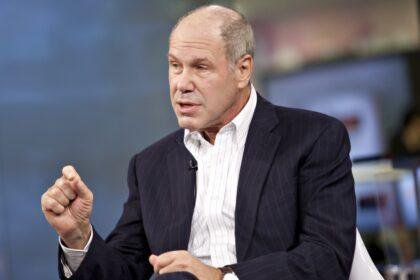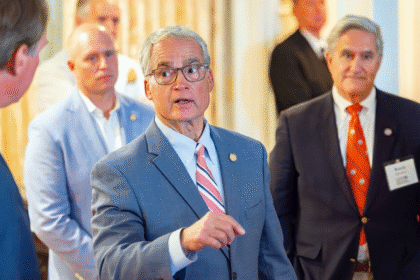Donald Trump Eyes Nobel Peace Prize: A Look at the Controversial Nomination
As the world anticipates the announcement of the 2025 Nobel Peace Prize winner on October 10, former President Donald Trump has emerged as a notable contender. His nomination, backed by Israeli Prime Minister Benjamin Netanyahu and the government of Pakistan, has sparked discussions about the criteria for this prestigious award and the implications of Trump’s potential recognition.
Understanding the Nobel Peace Prize
Established by the will of Alfred Nobel, a Swedish inventor and philanthropist, the Nobel Peace Prize has been awarded since 1901 to individuals or organizations that have made significant contributions to global peace. Nobel’s vision was to honor those who “shall have conferred the greatest benefit on mankind,” with a specific focus on promoting fraternity among nations and reducing military conflicts.
The award has evolved over the years, recognizing a diverse array of efforts, from disarmament initiatives to humanitarian work. Notable laureates include former U.S. Presidents Barack Obama and Jimmy Carter, as well as activists like Malala Yousafzai and organizations such as the International Campaign to Abolish Nuclear Weapons.
The Award Process
The Nobel Peace Prize is awarded by a committee appointed by Norway’s parliament. Nominations can be submitted by a wide range of eligible nominators, including national assembly members, government officials, and previous laureates. The nomination deadline for the 2025 prize was January 31, with over 330 candidates put forward.
Once nominations are closed, the committee reviews the candidates and creates a shortlist based on their contributions to peace. The final decision is made by majority vote, although the committee strives for consensus. The winner is announced in early October, with a formal ceremony held in Oslo on December 10.
Trump’s Claim to the Prize
Trump has publicly positioned himself as a “president of peace,” asserting that he has played a pivotal role in resolving multiple international conflicts. He claims to have ended several wars during his presidency, including tensions between Israel and Iran, and has proposed peace plans for the Israel-Palestine conflict. In recent statements, he has expressed confidence that he deserves the Nobel Peace Prize, suggesting he should have received it multiple times.
Despite his assertions, foreign policy experts have raised questions about the actual impact of Trump’s actions on global peace. While he has engaged in diplomatic discussions with various world leaders, the outcomes of these efforts remain contentious and complex.
The Controversy Surrounding Trump’s Nomination
Trump’s nomination has not been without controversy. Critics argue that his approach to foreign policy often prioritized personal and political gain over genuine diplomatic efforts. The Nobel Committee has historically been cautious about awarding the prize to individuals who may be perceived as politically motivated or who have not demonstrated sustained efforts toward peace.
In light of this, experts suggest that the committee may be hesitant to award Trump the prize, especially given the current geopolitical climate. The committee tends to favor candidates whose contributions to peace are durable and promote international cooperation, rather than those who may be seen as seeking political validation.
Historical Context: Previous Winners
The Nobel Peace Prize has a rich history of recognizing individuals and organizations that have made profound impacts on global peace. For instance, Barack Obama received the award in 2009 for his efforts to strengthen international diplomacy, despite being in office for less than a year. This decision was met with skepticism, as many questioned whether he had achieved enough to warrant such an honor.
Similarly, Jimmy Carter was awarded the prize in 2002 for his post-presidency humanitarian work, which included efforts to promote democracy and human rights. These examples illustrate the committee’s willingness to recognize potential and promise, even in the absence of concrete achievements.
The Road Ahead for Trump
As the announcement date approaches, the question remains: could Donald Trump actually win the Nobel Peace Prize? While he has received nominations, the committee’s decision-making process is shrouded in secrecy, and the criteria for selection are often subjective.
Moreover, Trump’s recent nomination efforts, including calls from the Israeli Hostages Families Forum to recognize his leadership in negotiating the release of hostages taken by Hamas, have come after the nomination deadline for the 2025 prize. This raises further questions about the legitimacy of his candidacy.
Experts suggest that the Nobel Committee is unlikely to award Trump the prize based on his second-term achievements alone. The committee’s focus on the long-term impact of peace efforts and its desire to avoid political pressure may weigh heavily in their deliberations.
Conclusion
As the world awaits the announcement of the 2025 Nobel Peace Prize winner, Donald Trump’s nomination has ignited a complex debate about the nature of peace, diplomacy, and the criteria for such a prestigious award. While he may see himself as a deserving candidate, the Nobel Committee’s history and values suggest that the path to the prize is fraught with challenges. Whether or not Trump will join the ranks of past laureates remains to be seen, but the discussions surrounding his nomination highlight the intricate relationship between politics and the pursuit of global peace.











